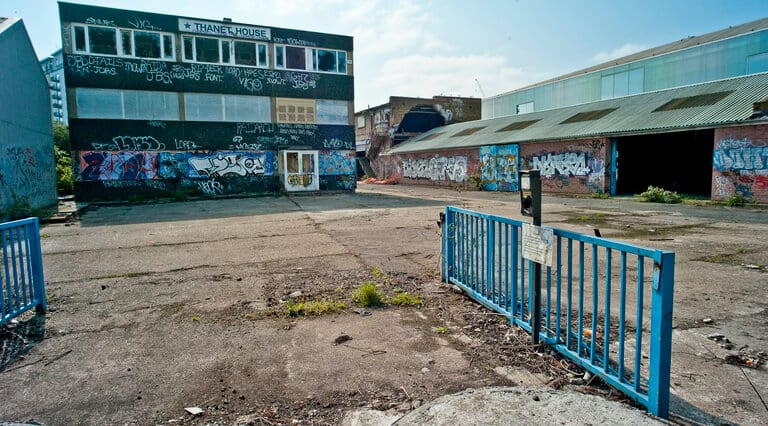Show-biz is making a comeback to New York, but not to Broadway, not even to NYC. Lions Gate Entertainment Corp. just struck a deal with Yonkers, New York. They plan to build a $100M production facility in Yonkers. With economic savvy, they plan to build it square in the middle of an economically depressed area. And that area has been designated as an “opportunity zone.”
Show-biz, The Opportunity Zone, and Tax-breaks: The Backstory
Yonkers might seem a strange location for sound-stages and production facilities. However, we’re sure the city fathers, the show-biz producers, and their accountants know the newest tax laws for Opportunity Zones.

As we specified in a previous blog, “there is a new set of IRS regulations for investors” in economically depressed areas, designated opportunity zones.
From Yonkers Point of View:
Yonkers will get a great injection of capital for business and real estate development. They will get it right there in the heart of the areas in most need. The Show-biz company will bring jobs to the area. They will build and remodel the structures of the area. Consequently, new workers will need places to eat and live as well as work.
Gavrilov & Co laid the groundwork for this story when we explained, “the new tax regulations. They are sweetening the Opportunity Zones Fund investing with some tax breaks for capital gains. At the end of October 2018, the IRS released initial rulings for investors.” The ruling applies to those seeking “opportunities in real estate and investment in our country’s most distressed areas.”
From the Show-biz Company’s Point of View:
The executive accountants at Gavrilov & Co want you to know there might be more regulations for capital gains tax breaks and Opportunity Zones forthcoming this winter. However, right now, this opportunity not only looks good for Yonkers but also for the Show-biz producers at Lion’s Gate.
Investing with Heart and Wallet
Lion’s Gate and its investors will qualify for a number of special breaks. Consequently, we want our readers to know the new laws are very specific:
1. Firstly, only Capital gains can qualify for investing.
2. Above all, we want you to be certain about what projects actually qualify before you invest.
How the Tax Break Works for the Show-biz Investors in the New Lion’s Gate Headquarters, Yonkers, NY:
Lion’s Gate investors will qualify by taking proceeds that would be subject to capital gains taxes. Then, they will reinvest them in Opportunity Zone Funds. Specifically means they would invest in the Yonkers Opportunity Zone Funds for the new Lion’s Gate corporate campus.
The investors put money into the Yonkers Opportunity Zone Funds. Then, they enjoy their profitable studio. Lion’s Gate builds or re-builds to create their new headquarters. Then, at tax times, the investors can just defer their capital gains taxes. As time goes on and the new studio location thrives. Consequently, they can reduce their capital gains taxes again and again. Perhaps we will return to this point in a future blog. But first, let’s look at more details of the deal, below. Meanwhile, Gavrilov & Co has developed a “Wait and See” attitude. However, put on paper, every party to this deal looks like a winner.
Lions Gate’s $100M Yonkers Spotlights Capital Gains Incentive
Step by Step, the deal, the tax break, and the community work together. They bootstrap out of an economic prison and urban blight. However, you might not recognize Lions Gate Entertainment

Corp., by name. But, they are the studio and production company behind television hits like “Orange Is the New Black.”
Some experts praise the Lions Gate project and similar investments in opportunity zones. They endorse the fact that the shiny new tax incentives create the “biggest effort in a generation to help struggling U.S. communities…”
However, the Lion’s Gate deal has added fuel to the fire of a huge debate. Some pundits think that the tax incentives might benefit only the wealthy investors, like the Show-biz corporation, in this case, more than the low-income families and businesses of the area.
The Opportunity Zone Vision for Capital Gains Use and Incentive
Let’s review some main points about the opportunity zones.
1. As we stated in a previous Gavrilov & Co. Blog, “The zones are a creation of President Trump’s signature tax law that use tax advantages to lure capital to economically lagging cities, suburbs and rural areas.”
2. The big criticism of this tax incentive program has been that they would become handouts for the rich.
3. Likewise, some local leaders and economic development experts have feared opportunity zone money would end up in urban real estate alone. (Yonkers is just far
away enough from New York City to discourage this criticism.)
4. Gavrilov & Co reminds you that believers in the Opportunity Zone program wanted investors to establish jobs. They wanted to see the investments not only establish businesses but also revitalize communities. As stated previously, the legislators wanted to see investments that would yield long term growth in struggling urban or rural communities.
Obviously, the best users of opportunity zones would be investments that created authentic business and economic growth. In effect, it would be a sort of self-reinvention. Will Lion’s Gate fit the bill?
Show-Biz and the Community Spirit
Initially, backers of the Lions Gate deal have stated that they have grounded the Yonkers effort in “it’s industry forces, not just the breaks, that are driving their investment.”

Then, they point out the popularity of streaming services. Certainly, they stated, they “have fueled an explosion in demand for studio space and exposed a shortage of locations.”
Robert Halmi, co-founder of the Hallmark Channel is a partner on the project through his company, Great Point Capital Management. He stated, “This project is built on sound stand-alone economics…” He explained, “What’s driving our investors really is building the right kind of space at the right time” …”This is building film and television complexes where people really need it.”
Lions Gate Community Based Plans
To accomplish typical Show-biz goals, Lion’s Gate plans to create recording studios and sound stages. Beyond that, they intend to support female and minority storytellers and innovators. Lion’s Gate “will make technology investments.” And they will “create a slate of films and TV shows content, as well as rent out its facilities.”
Initially, Lions Gate will be an anchor tenant in the Yonkers project. Then, more partners will be invited to help Yonkers grow economically. You see, Robert Halmi and his Great Point Capital specifically manages a fund for film and television infrastructure in opportunity zones. And you might be happy to know that “The developer is New York-based National Resources.”
Yonkers Gets a Show-biz Giant
Lions Gate will build five sound stages and renovate entire areas around them. Three of them will occupy 20,000 square feet each. Likewise, they will create a fully operational back-lot. And it all starts in November with a planned grand opening next fall.
How did Yonkers get so lucky as to land this deal? Yonkers answered three great criteria:

1. It’s within an opportunity zone.
2. But it’s close enough to New York City to avoid paying higher on-location wages to union workers.
3. And finally, “Yonkers rates as an up-and-coming area,” said Halmi.
Yonkers is no stranger to film crews. It is already a popular filming location. You’ve seen it as a location in USA Network’s “Mr. Robot” and Showtime’s “The Affair.”
Growing The Community Spirit
According to corporate announcements, young people in the Yonkers area can look forward to applying for internships in the television and movie industry through Lion’s Gate community outreach.
Likewise, local businesses can expect to profit from cast and crew. Even in Show-biz, people must be practical; they all have to spend money on lodging, food, and other services.
Gavrilov & Co will be watching to see if Lion’s Gate and similar Opportunity Zone projects generate positive results for both investors and communities. Will it be a hand-out for the Lion’s Gate rich or a hand up for the Yonkers’ working-class community? Only time will tell.

